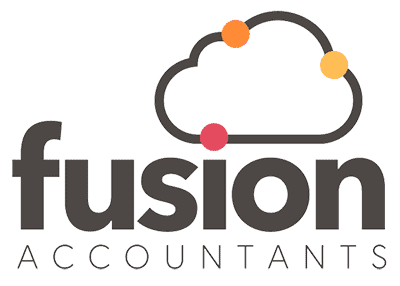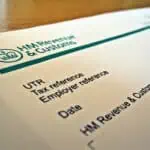Guide to Rental Income and Expenses
Reading Time:
Are you looking to purchase a new home, rent out your old one, or live with your parents to make some money from your current home? As a new property landlord, you will need to pay income tax on the rent you receive from your properties.
With the property rental income you receive, you will then need to declare it on your annual self-assessment income tax (or we are delighted to look after this for you), so you can submit your income figures to HMRC. However, you may have some eligible expenses you can offset against your income figure, which will minimise your rental income and reduce the amount of tax you pay.
HMRC has some thresholds in place for the amount of income you can make in a year before taxing you.
In the current 2020/21 year, this would be £50,000 (£12,500 personal allowance and £37,500 lower tax rate threshold). The £12500 is tax-free, but the £37,500 will get taxed at 20%.
If you make over £50,0000, you will start getting taxed on the excess at 40%, and if your income exceeds £150,000, the tax rate goes up to 45%.
This is where planning your expenses comes in. For example, if you know that you will receive £55,000 in the year and you have repair costs that total £5,000, get the problem fixed, as you will reduce your income to £50,000 and incur no higher tax rate.
In this guide, we look at a variety of allowable expenses you could claim.
Agent Fees
You require assistance to help find tenants to rent your accommodation. The fee’s you pay an estate agent to advertise your property for rent are allowable. The commission you have to pay them can be included in this too.
Repairs
Genuine repairs are included and allowable. This does, however, exclude capital expenditure so no improvements to your assets!
Example: Paying to have a window fixed in your property is perfectly fine as this is an allowable genuine repair expense.
While having the window fixed, the contractor points out that your roof can be insulated for a fee (enhancing your property). This is not allowed as the suggestion is to improve the property instead of just repairing it.
Items attached to your property (such as baths, sinks, toilets) are counted as part of the property and repairs to these items are included as genuine repairs. Any replacement of an old attached item with a new modern one can be counted as a repair.
If you simply upgrade an existing appliance with a more modern feature, this would not count as a repair.
It is a bit of a grey area, so if you are in any doubt about what you can or cannot claim, check out HMRC’s guidance. Alternatively, get in touch with us, and we will happily answer any questions you have regarding this area.
If you just purchased the property and repaired it, you must rent the property out. Unfortunately, these are classified as capital expenditures, so you cannot claim for these.
Motor Expenses
If transportation is required to run your property business, then you have a couple of options around claiming expenses against your income.

Option one: You can claim the HMRC’s mileage rates of 45p per mile for the first 10,000 miles each year and then 25p per mile for the remaining miles. You cannot claim repairs and fuel on top, though as HMRC have stated, these are included in the rates.
Option Two: On the other hand, you can claim a percentage of the costs to run your vehicle, though this does not include personal use of your transport, so do not claim the total expenditure of the vehicle. You will need to determine what percentage of travel was for business and claim only that percentage of the costs.
Remember that once you pick one of these options, you have to stick with it until you change your vehicle. HMRC will not allow you to jump back and forth between the two in a particular year.
Travel and Subsistence
Covers any travel by train, plane or taxi for business and hotel and food costs as long as it is for business use only. Keep your expense receipts separate from theirs if you have friends and family going with you.
Office Costs
Did you know that you can claim your use of home costs? You can work out the business portion of your home expenses if you work from home based on the amount of floor space you use while working and the amount of time you spend working. Alternatively, you can claim a flat home rate. To find which of these figures would be the most beneficial to you, check the figures with your accountant first. Once you pick a method, you should stick to using it going forward.
The flat rates for the use of home expenses are as follows. They are based on hours worked from home, so keep track of these hours as you work.
| Hours of business use per month | Flat rate per month |
| 25 to 50 | £10 |
| 51 to 100 | £18 |
| 101 and more | £26 |
Legal and Professional Fees
You can claim some course fees where the education relates to your property business. Even some of your accountant, solicitor, surveyor and estate agency fees can be deducted too. However, you will have to be careful with these fees as not all of them can be claimed. To get an accurate understanding of what you can claim, talk to your accountant and explain the circumstances of each cost in question. The last thing you need is a penalty from HMRC for getting it wrong.
Furnishings
The ‘wear and tear’ allowance now no longer exists, but you can still claim the costs of replacing existing furniture, however.
Start-up costs
Before you even start trading in property, you will likely incur some initial start-up costs. The pre-trading expenses that would be allowable after your business starts trading can be deducted. Unfortunately, improvements are not. It is the repairs bringing everything up to working order that count. Your accountant will be more than happy to go through your pre-trading expenses with you to determine what can and cannot be claimed.
Other allowable expenses
Other extraneous expenses that can be claimed are as follows:
- Council tax and utility bills (but only where you are paying them instead of the tenant)
- Ground rent and service charges
- Insurance
This list is not exhaustive though. If you have any queries over expenses not mentioned in this article, please contact us and we will look into each of them for you.
Rental Losses
HMRC give as well as take and they understand that some of you may fall on hard times. To this effect, they allow you to offset losses from one of your properties against the income from another. You can only offset rental losses against rental income though. You can’t do it against your other personal types of inc
HMRC does allow you to offset losses from one of your properties against the income from another. You can only offset rental losses against rental income, though. You cannot do it against your other personal types of income. Make sure you include your losses on your self-assessment return (including excessive losses you could not net off) as you will be able to carry forward loss against the following year to net off then instead.
A minor point to note here is that you cannot offset losses from a furnished holiday let property against a commercial/residential let property and vice versa. Therefore, these will need to be kept separate.
Capital Allowances
On the other hand, you may be able to claim capital allowances on certain capital expenditures.
You may be able to claim capital allowances on certain capital expenditures. Grey area again however as only some capital allowances are allowed. Capital allowances for the following are allowed:
- Vehicles
- Computers
- Tools such as lawnmowers and ladders
Essentially, anything used in the property business. Allowances that cannot be included are:
- For Furniture
- Household equipment provided for use in a furnished letting
Replacement of Domestic Items Relief
As mentioned above, you cannot claim capital allowances regarding furnishings in a residential property. However, if you are letting out your property, you can claim for the cost of replacing domestic items such as:
- Furniture and furnishings
- Household appliances
- Kitchenware
So that you are aware, relief is not available on items where capital allowance was already allowed to be claimed. You can not get this relief if the property is a furnished holiday letting or rent a room relief is claimed. If the item you replace it with is substantially better than the original, you can only claim up to the original item’s price or similar. You can claim for the cost of disposing of the original item, though.
Lastly, you do not get relief if you use the property yourself during the year.

Interest Relief
Some property purchases are made against an existing mortgage. When you let out your property, you can get relief on the interest paid for the loan.
You can deduct the interest as an allowable expense for furnished holiday lettings. However, you cannot claim it as an allowable expense for residential properties. Instead, it needs to be included as a reduction when working out your income tax to give essential rate tax relief.
The basic rate tax relief is only available at the lower of:
- The property income for the year (fewer losses brought forward) or,
- Adjusted total income (net income fewer savings and dividend income less the personal allowance.)
The amount on which 20% relief (essential rate tax relief) is given is less than the interest paid (eligible for the relief). The excess amount that does not receive relief is carried forward to the following year. It then gets added to the amount of interest eligible for relief next year.
Summary
All in all, there is a lot you can do with your expenses to reduce your income tax liability, and I hope you found this information useful. However, the rules surrounding property rental do change, so if you are unsure about the latest regulations affecting renting income and expenses, please call us, and we will be happy to help you.
We are specialist Property Accountants in London, providing all the necessary advice for Landlords looking to expand their property portfolio or support with business management. Our Qualified Accountants will assist what is an allowable expense so that you can grow your property whilst keeping on the right side of HMRC when it comes to tax and legislation compliance






